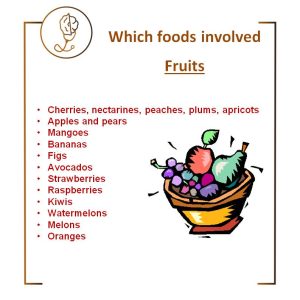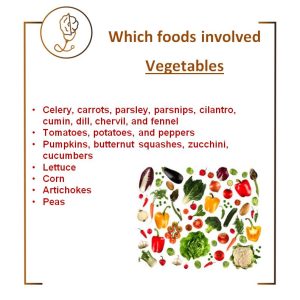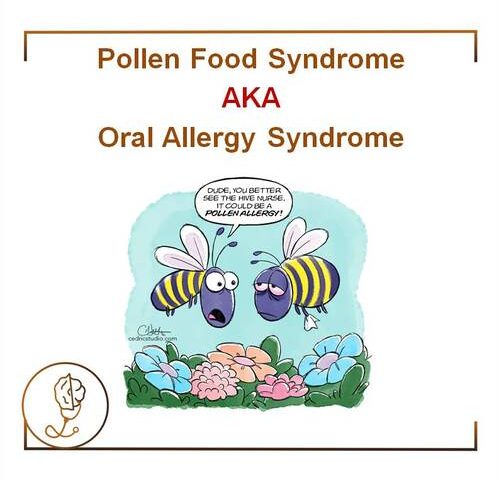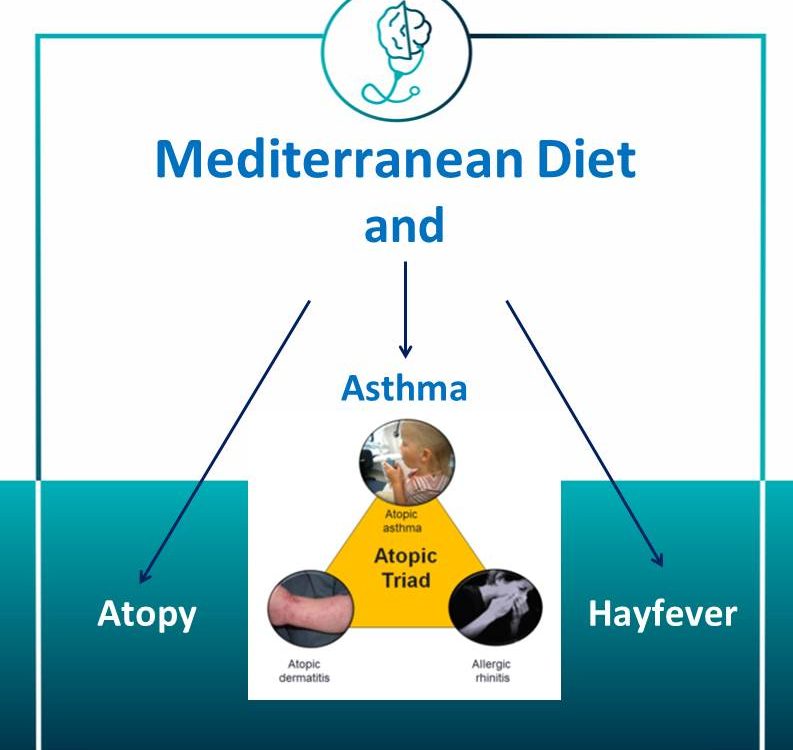Pollen Food Syndrome

Peanut Allergy
10/08/2020
Allergy to Pets
29/09/2020How many of you have complained that you feel your lips or mouth tingling after eating some fruits or vegetables?
If you also suffer from Hay fever, we are talking about Oral Allergy Syndrome, of which Pollen Food Syndrome is a part.
𝗪𝐡𝐚𝐭 𝐢𝐬 𝐢𝐭 𝐭𝐡𝐞𝐧?
This is an allergic reaction, with swelling and itchiness, affecting the mouth, lips, tongue, and throat only.
It is not common to cause swelling of the throat.
Even less common to cause anaphylaxis.
Usually, the symptoms are seen within a few minutes of eating certain fruits and vegetables, mainly when they are raw.


𝗪𝐡𝐲 𝐝𝐨𝐞𝐬 𝐭𝐡𝐢𝐬 𝐡𝐚𝐩𝐩𝐞𝐧?
Some proteins in foods are similar to some of the proteins found in certain pollens, so a cross-reaction might occur. That is also why it is called Pollen Food Syndrome.
𝗪𝐡𝐞𝐧 𝐜𝐚𝐧 𝐬𝐲𝐦𝐩𝐭𝐨𝐦𝐬 𝐬𝐭𝐚𝐫𝐭?
For a child to suffer from hayfever, they usually need to be exposed to 2 pollen seasons.
For Pollen Food Syndrome to develop, they need to be exposed to the food causing the reaction, many times.
This means it is not common to find it in toddlers.
𝐒𝐨 𝐢𝐭 𝐦𝐚𝐢𝐧𝐥𝐲 𝐚𝐟𝐟𝐞𝐜𝐭𝐬:
- Adults
- Teenagers
- Older children
This type of symptoms are not associated only with the pollen season, this as we can find those foods available throughout the year.
Saying this, symptoms usually are higher when the pollen count is also higher.
𝗪𝐡𝐚𝐭 𝐚𝐫𝐞 𝐭𝐡𝐞 𝐦𝐨𝐬𝐭 𝐜𝐨𝐦𝐦𝐨𝐧 𝐩𝐨𝐥𝐥𝐞𝐧𝐬 𝐰𝐞 𝐧𝐞𝐞𝐝 𝐭𝐨 𝐥𝐨𝐨𝐤 𝐟𝐨𝐫, 𝐭𝐨 𝐬𝐚𝐲 𝐭𝐡𝐞𝐫𝐞 𝐢𝐬 𝐚 𝐜𝐨𝐧𝐧𝐞𝐜𝐭𝐢𝐨𝐧?
𝘛𝘳𝘦𝘦𝘴
- Birch
- Alder
- Japanese cedar
- Plane
𝘎𝘳𝘢𝘴𝘴𝘦𝘴 (𝘢𝘴𝘴𝘰𝘤𝘪𝘢𝘵𝘪𝘰𝘯 𝘪𝘴 𝘥𝘰𝘶𝘣𝘵𝘧𝘶𝘭)
- Timothy
- Orchardgrass
𝘞𝘦𝘦𝘥𝘴
- Wormwood
- Ragweed (association still unclear)
- Mugwort
- Parietaria species (a member of the Urticaceae family – nettles among others)
𝗪𝐡𝐚𝐭 𝐜𝐚𝐧 𝐰𝐞 𝐝𝐨 𝐚𝐛𝐨𝐮𝐭 𝐢𝐭?
- We usually suggest that parents or patients cook the fruits or vegetables that might be causing the symptoms.
- This is because the protein involved in this reaction is not stable to high heat, thus changing its form leading to the absence of reactions in most patients.
Caution as in the case of roasted hazelnuts and cooked celeriac, in some cases, minute amounts of the protein might still cause symptoms in highly sensitized patients.
There is also the possibility that immunotherapy directed at the pollen involved in the cross-reaction, might lead to a decrease of symptoms.
After having a diagnosis made (and this is one of the reasons component diagnostics are needed), a dietitian’s cooperation is required, so appropriate follow-up and plan to introduce other foods that are closely related to the one initially the patient reacted to.
If your child has a reaction, the best course of action is:
- give antihistamines
- call 999 if worried
- avoid food(s) thought to be causing symptoms
- ask your GP to refer to a Consultant Paediatric Allergist


